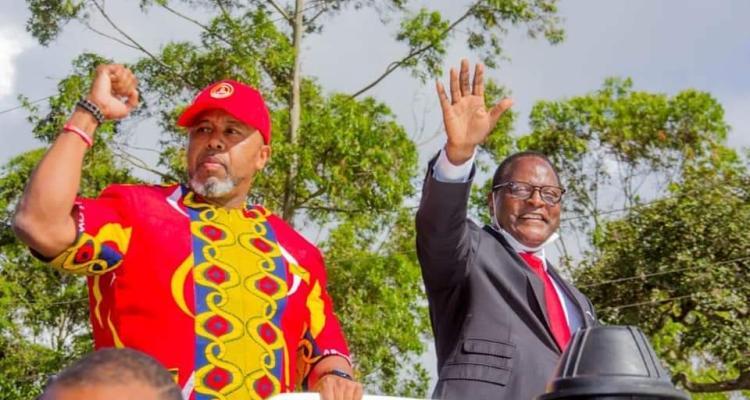
On 3 February 2020, the High Court sitting as a constitutional court in Lilongwe, nullified the 2019 presidential election which was won by Peter Mutharika.
This verdict was arrived at following massive electoral irregularities although the court conceded that there was no evidence that the irregularities affected any presidential candidate’s votes and that it did not find any evidence of rigging or electoral fraud.
The cited irregularities included the use of correction fluid, uses of duplicate forms and lack of signatures on some result sheets.
Close to 4 years have gone and Malawians will return to polls in September 2025.
However, one ardent social media contributor anonymously asks very thought-provoking questions which this write-up endevours to answer.
1. Did the 2020 Concourt judgment make any impact in Malawi’s political landscape?
Frankly speaking, the judgment made a huge impact as it changed Malawi’s political landscape.
First, It was the first time in the history of Malawi that a presidential election was nullified.
Second, after the opposition presidential candidate, Dr. Lazarus Chakwera, had won the 2020 fresh presidential election, it was interesting to see the already sworn-in President Peter Mutharika relinquishing power.
Third, the introduction of 50% plus 1 as an algorithm to determine the winner of presidential elections has forced many political parties to form electoral alliances.
Much as electoral alliances have a great propensity to unite Malawians, they have prematurely choked presidential aspirants such as Prof. John Chisi, Ras Chikomeni and Peter Driver Kuwani.
2. Were the Malawians served with the right judgment?
No, it was not the right judgment as it contained a lot of errors and contradictions.
First, the judgment was unconstitutional. Malawi Constitution provides for Members of Parliament (MPs) to serve a five year tenure of office. The current crop of MPs will serve for 6 years. Obviously this is unconstitutional and the judgment was a scam.
Second, it was an error to nullify the presidential elections based on electoral irregularities which are usually prevalent in all elections. Even the court admitted that it did not find any evidence that the irregularities affected the votes of any presidential candidate.
Furthermore, the Concourt conceded that it found no evidence of any electoral fraud or rigging. Therefore, the nullification of 2019 presidential election lacked legal backing.
One thing for sure is that 2019 Presidential election was nullified based on political reasons. Perhaps the judges were paranoid of the impending violent nationwide demonstrations.
Third, it was ultra vires for the lower court, 2020 Concourt, to override the decision of the higher court, 2000 Supreme court case, on the interpretation of the word ‘majority’.
Such 2000 supreme court of appeal comprised Justice Unyolo, Justice Msosa, Justice Twea and Justice Tambala who unanimously interpreted the term ‘majority’ as first past the post.
Fourth, following the erroneous interpretation of the word ‘majority’, it is interesting to note that such a term is equivocally being applied differently within the same tripartite general elections.
First past the post is being used to determine the winner of parliamentary and local governments elections while 50%+1 determines the winner of presidential elections.
It is clear from this discussion that the 2020 Concourt ruling brought confusion in our constitution instead of harmonising it.
Fifth, the Concourt expected the Malawi Electoral Commission (MEC) to apply the 50 + 1 case law retrospectively. This was unfair.
The Concourt faulted MEC for declaring Prof. Mutharika the winner of 2019 presidential election because he did not attain at least 50% of the cast votes. For sure, 50%+1 case law came into force in 2020 and not in 2019.
3. Based on the judgement and the changes that followed, are you a happy citizen or not?
Truth must be told, most citizens are not happy with the current Chakwera regime which is benefiting a few individuals.
Many Malawians had high expectations of Tonse Alliance Government because it promised them many things.
Four years under Chakwera leadership, life of a common citizen has become unbearable. Prices of essential basic goods and services have gone up.
For instance, instead of creating the promised one million jobs, over 600,000 Malawians lost their jobs within the first year of Tonse Alliance government.
Currently, corruption, nepotism, selective justice and hypocrisy are the order of Tonse Alliance administration.
4. Malawians are returning to polls next year, have you already made up your mind to vote for a candidate of your choice?
As of now, it is premature to make up one’s mind to vote for a particular candidate.
Many Malawians are eager to know their presidential candidates after various political parties have held their respective national elective conference this year.
Furthermore, even after knowing the torchbearer of each political party, 50%+ 1 winner determining algorithm will force various political parties to enter into alliance agreement.
However, it is highly probable that the fierce electoral bout will be between former President Prof. Peter Mutharika and incumbent President Dr. Lazarus Chakwera.
5. Who do you think will carry the day in September 2025?
In the most likely event that Prof Peter Mutharika and Dr. Lazarus Chakwera will be on the ballot paper in 2025, it will be a neck-to-neck tussle.
Much as President Chakwera has an added advantage of accessing government resources at his disposal as he is strategising for 2025 elections, former President Prof. Peter Mutharika has an impeccable record of easily knocking out incumbent president. He did that with Joyce Banda, will he do it again in 2020 Presidential election? Let us wait and see.
In conclusion, Malawian courts are being advised to provide legal solutions and not political verdicts which usually backfire.













